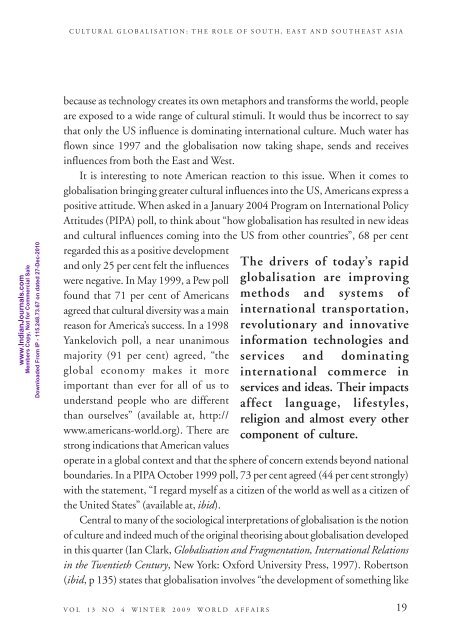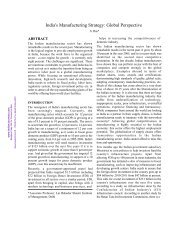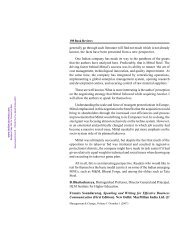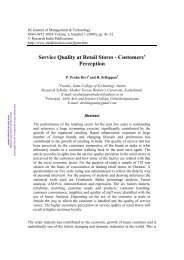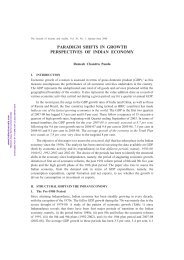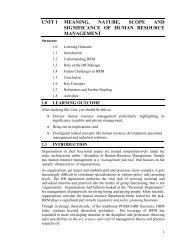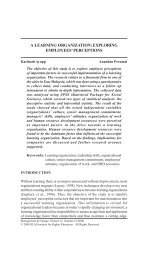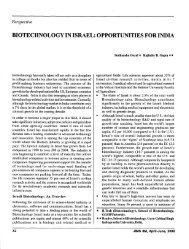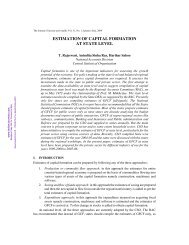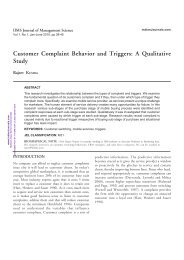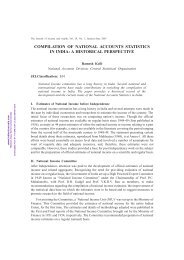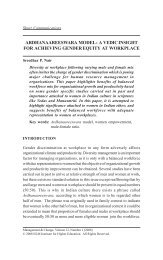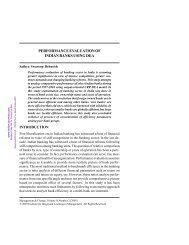Cultural Globalisation - Mimts.org
Cultural Globalisation - Mimts.org
Cultural Globalisation - Mimts.org
Create successful ePaper yourself
Turn your PDF publications into a flip-book with our unique Google optimized e-Paper software.
CULTURAL GLOBALISATION: THE ROLE OF SOUTH, EAST AND SOUTHEAST ASIA<br />
www.IndianJournals.com<br />
Members Copy, Not for Commercial Sale<br />
Downloaded From IP - 115.248.73.67 on dated 27-Dec-2010<br />
because as technology creates its own metaphors and transforms the world, people<br />
are exposed to a wide range of cultural stimuli. It would thus be incorrect to say<br />
that only the US influence is dominating international culture. Much water has<br />
flown since 1997 and the globalisation now taking shape, sends and receives<br />
influences from both the East and West.<br />
It is interesting to note American reaction to this issue. When it comes to<br />
globalisation bringing greater cultural influences into the US, Americans express a<br />
positive attitude. When asked in a January 2004 Program on International Policy<br />
Attitudes (PIPA) poll, to think about “how globalisation has resulted in new ideas<br />
and cultural influences coming into the US from other countries”, 68 per cent<br />
regarded this as a positive development<br />
and only 25 per cent felt the influences<br />
were negative. In May 1999, a Pew poll<br />
found that 71 per cent of Americans<br />
agreed that cultural diversity was a main<br />
reason for America’s success. In a 1998<br />
Yankelovich poll, a near unanimous<br />
majority (91 per cent) agreed, “the<br />
global economy makes it more<br />
important than ever for all of us to<br />
understand people who are different<br />
than ourselves” (available at, http://<br />
www.americans-world.<strong>org</strong>). There are<br />
strong indications that American values<br />
The drivers of today’s rapid<br />
globalisation are improving<br />
methods and systems of<br />
international transportation,<br />
revolutionary and innovative<br />
information technologies and<br />
services and dominating<br />
international commerce in<br />
services and ideas. Their impacts<br />
affect language, lifestyles,<br />
religion and almost every other<br />
component of culture.<br />
operate in a global context and that the sphere of concern extends beyond national<br />
boundaries. In a PIPA October 1999 poll, 73 per cent agreed (44 per cent strongly)<br />
with the statement, “I regard myself as a citizen of the world as well as a citizen of<br />
the United States” (available at, ibid).<br />
Central to many of the sociological interpretations of globalisation is the notion<br />
of culture and indeed much of the original theorising about globalisation developed<br />
in this quarter (Ian Clark, <strong>Globalisation</strong> and Fragmentation, International Relations<br />
in the Twentieth Century, New York: Oxford University Press, 1997). Robertson<br />
(ibid, p 135) states that globalisation involves “the development of something like<br />
VOL 13 NO 4 WINTER 2009 WORLD AFFAIRS 19


